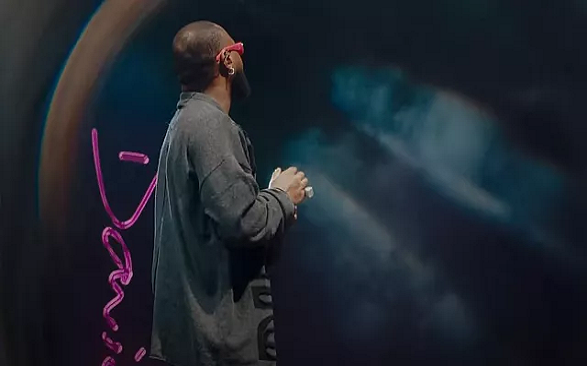Davido, the Nigerian music sensation whose real name is David Adedeji Adeleke, has made headlines in the cryptocurrency space with his latest endorsement and promotion of his new “Davido Coin.” Tracing Davido’s crypto trail, is there a pattern of pump and dump that should be of serious concern to stakeholders?
Notably, this is not Davido’s first foray into the crypto world. A closer look at his crypto trail reveals a pattern of involvement in various cryptocurrency projects that pumped fast and dumped faster, raising questions about Davido’s motives and the impact on his millions of fans in Nigeria and across the world.
Previous Unsuccessful Ventures by Davido
A fullstack web developer, cybersecurity expert, and Tech StartUp CEO, Charles Awuzie, took to his Facebook handle on May 30 to narrate the genesis of what he described as Davido’s crypto problem. According to Awuzie, he had offered Davido a significant amount of Transhuman Coin in 2021 which led to issues within Davido’s team. Eventually, Davido built the $Echoke token with the help of Bitsika Africa. $Echoke token was targeted at fan engagement and rewards and was promoted by Davido but it ultimately collapsed.
Promoting RapDoge and Racksterli
A closer look at the Afrobeat Star’s crypto journey shows that he had also influenced RapDoge, a meme token, on X in 2021, encouraging his 9.5 million followers to buy the coin. The token’s price surged over 100% but later returned to its pre-endorsement value. Some followers questioned Davido’s motives, citing his previous promotion of a Ponzi scheme, Racksterli, which crashed. They urged him to verify the legitimacy of projects before endorsing them to avoid misleading his fans.
A lot of Nigerians had fallen victims to Racksterli all because, apparently, Davido was involved. Racksterli, an investment platform owned by Michael Oti, was exposed for scamming people by promising unusually high returns on investment within a short period of time. Despite crashing in June 2021, the platform had resurfaced with new tactics, promising to double investments within 45 minutes and offering higher returns and Davido had hyped the platform thereby causing investors to lose large sums of money, with one victim, Max Okechukwu, losing N175,000. The firm’s website and social media platforms had been changed, and comments from complainants were constantly deleted to conceal the scam.
Read Also: What is Tokenomics and Why Does It Matter to Crypto Investors?
Davido’s Most Recent Involvement in Crypto (2024)
Davido recently launched his cryptocurrency token, $DAVIDO on May 29, on the Solana blockchain. Though $DAVIDO gained significant value upon launch, it subsequently plummeted, sparking accusations of a scam. The token’s value dropped from $10 million to $2.2 million, with some attributing the crash to a coordinated sell-off or “dumping” by Davido and other creators, flooding the market with the asset, leading to a lack of confidence and crash in value.
While some experts believe the token has no utility or use case, others argue that successful memecoins can eventually develop use cases. The token’s distribution raises concerns, with a single wallet holding 4% of the total coins and the top 10 holders controlling 22.56%. The sell-off resembles a “rug pull” or exit scam, but some argue it is a profitable move in the unregulated memecoin market. In 11 hours, Davido reportedly pulled out a profit of 2,783 $SOL ($473,000), with over $200,000 of unrealized profit:
Having suffered financial losses, many took to social media to express their frustrations, feeling misled or scammed by the celebrity. It was a serious backlash on Davido’s status.
Read Also: Solana’s 183% surge in 30 days: Dynamics and Prospects
Davido’s involvement in cryptocurrency projects exhibits a concerning pattern. He has endorsed several questionable projects, including Racksterli, a known Ponzi scheme, and RapDoge, a meme token that crashed after his endorsement. There appears to be a lack of due diligence on his part, seemingly prioritizing personal gain over the safety of his investing fans.
The sudden surge and crash of $DAVIDO, as well as the coordinated sell-off, resemble a pump and dump scheme, where creators profit at the expense of investors. Despite being cautioned about the risks of promoting unverified projects, Davido continues to engage in similar behavior, disregarding the financial losses suffered by his fans.
The $DAVIDO token’s rapid price increase, coordinated sell-off, lack of utility, and concentrated token distribution among a few wallets raise potential signs of a pump and dump scheme. The unregulated memecoin market makes it vulnerable to exploitative tactics.
Davido’s pattern of behavior therefore suggests prioritizing personal gain over his fans’ well-being, potentially engaging in pump and dump schemes that lead to financial losses for investors.
While Davido’s enthusiasm for cryptocurrency is evident, his involvement in these projects warrants scrutiny. As celebrities increasingly influence investment decisions, it is crucial to examine their motivations and the potential impact on their fans. The cryptocurrency space requires caution and thorough research, and Davido’s followers would do well to conduct due diligence before investing in his endorsed projects.
Read also: Shitcoins and Scam Coins: Understanding their similarities and differences
SEC says $Davido is not an investment product but a cryptocurrency “inspired by memes and internet jokes”, therefore holders are fooling around with their money.
On 14 June 2024, the Securities and Exchange Commission (SEC) issued an investor alert with a disclaimer, stating that the SEC “does not recognize $Davido as an investment product or investable asset class under its regulatory purview, as such individuals who patronize it, do so at their peril.”
According to the SEC, memecoins “are cryptocurrencies inspired by memes and internet jokes.” These memecoins are “often envisaged as a fun, light-hearted cryptocurrencies promoted through a social media community and sometimes through celebrity endorsements.’ Apart from that, memecoins “are also NOT intended to serve as a medium of exchange accepted by the public as payment for goods and services, or as digital representation of capital market products such as shares, debentures, units of collective investment schemes, derivatives contracts, commodities or other kinds of financial instruments or investments.” Consequently, the SEC emphasized as follows:
The general public is HEREBY ADVISED that meme coins lack fundamental value and are purely speculative. The general public is further WARNED that investing in meme coins, including $Davido, is highly risky and should be done with a full understanding of the associated risk.
Read Also: Understanding the Pros and Cons of Memecoins as an Investor
The SEC warned capital market operators (CMOs) to not associate “with instruments that fall outside the SEC’s regulatory purview”. Meanwhile, the SEC states that it would “continue to monitor developments within the ecosystem and will not relent in deploying its regulatory powers as and when required.”
The SEC’s position on $Davido is understandable, considering that memecoins are not, generally, investment products as it rightly observed.
However, considering the celebrity status of Davido with X (Twitter) followers numbering up to over 9 million across the globe, mainly Nigerians; considering Davido’s previous endorsements of questionable coins or tokens in recent past; and considering that Davido reportedly profited from the $Davido scheme at the expense of other holders, $Davido should not be merely treated as some memecoin for internet jokes.
First, the SEC needs to be more proactive. A mere disclaimer by the SEC may not always be sufficient. With a mandate to ensure consumer protection and investor safety and with its recent foray into digital assets space, the SEC must be mindful of not indirectly encouraging other celebrities to also abuse their popularity by endorsing unregulated coins or tokens at the expense of people’s money. Davido reportedly made a profit of 2,783 $SOL ($473,000) in just 11 hours, and by 30 May 2024, had an unrealized profit of $207,000. It was this sell-off that led to the drop of the value of $Davido from a $10 million market cap to $2.2 million. This doesn’t look like an internet joke. If it does, no one is laughing. To the holders of $Davido, the joke must have been quite costly. Second, the SEC’s investment education department needs to consider introducing a crypto or digital asset investment education program. Such investor education initiative could be in collaboration with the industry who are closer to the market.
Perhaps, SEC’s disclaimer is also a wake-up call to the members of the public out there that memecoins—as well as shitcoins—are not the kind of coins they should be joking around with. They lack fundamental value, thus they will almost always crash, and the joke will be on you.
Always apply risk management strategies.
Read Also: Notcoin: SWOT Analysis for Investors, Holders, and Users
Credit: Solomon Victor is a Technical Analyst who is also knowledgeable about various aspects of blockchain and cryptocurrency.
Discover more from Crypto Asset Buyer
Subscribe to get the latest posts sent to your email.





